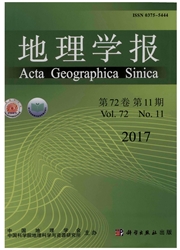

 中文摘要:
中文摘要:
城市碳基能源代谢是当前应对全球气候变化与资源耗竭研究的重要突破口。针对碳排放研究在城市尺度核算的薄弱环节,以及城市代谢研究在社会经济子系统碳基能源转移分析上的缺陷,文章基于碳足迹与城市代谢阐释城市碳基能源代谢的内涵,界定其核算范畴与边界,构建城市复合生态系统碳基能源四种范畴不同代谢过程的核算方法体系。以北京市为案例,阐明三种核算方法的特点。研究认为,城市碳基能源代谢是对城市社会经济发展过程中资源利用与环境协调发展量度的一组低碳生态城市指标体系;不同碳基能源代谢核算方法各具特色,应根据数据可得性与研究目标针对性进行选择,以增加研究结果之间的规范性与可比性;不同范畴界定下的碳基能源代谢核算可以根据生产、消费及共担责任原则处理碳减排的责任问题;中国的城市碳基能源代谢实质是一种城市区域碳基能源代谢,三种核算方法从不同视角与层面揭示城市碳基能源代谢特点,三者结合能全面分析产业与能源结构调整、居民生活方式变化对低碳生态城市发展的作用路径与规律;城市部门结构(产业、居民)与技术结构变化的碳基能源代谢响应是进一步研究的重点。
 英文摘要:
英文摘要:
It is crucial to assess carbon-based energy use and related carbon emissions to assign responsibility for emissions reductions. Previous studies have scantly documented urban carbon emissions and addressed carbon-based energy transfer in socio-economic subsystems. Therefore, this study aims to build a framework and indicator system of urban carbon-based energy metabolism to standardize the accounting methods on fossil-energy related carbon emissions. The framework explains the connotation of urban carbon-based energy metabolism and defines its accounting scope and boundary based on "carbon footprint" and "urban metabolism". The indicator system exhibits the input, conversion, transfer and output process of carbon-based energy for urban complex ecosystems with different spatial boundaries. The research suggests that urban carbon-based energy metabolism can be used to analyze the coordination between resource and environment for low-carbon eco-cites in process of urban socio-economic development. Secondly, three accounting methods use different benchmarks to estimate urban energy use and carbon emissions. In order to raise comparability between research results, we use the method to select the available data and the targeted research objectives. Thirdly, carbon reductions should be allocated based on production, consumption and/or shared responsibility by different accounting methods. In essence, urban carbon-based energy metabolism in China is one kind of city-region related metabolism. From perspective of the industrial and energy restructuring and the residential lifestyle changes, the combination of three comprehensive methods can reveal the evolutionary mechanism and pattern has developed systematic accounting methods of urban carbon-based energy. This research to measure urban sectoral carbon emissions. Furthermore, responses to technology structure changes are needed to understand the future change scenarios of energy use and carbon emissions.
 同期刊论文项目
同期刊论文项目
 同项目期刊论文
同项目期刊论文
 期刊信息
期刊信息
